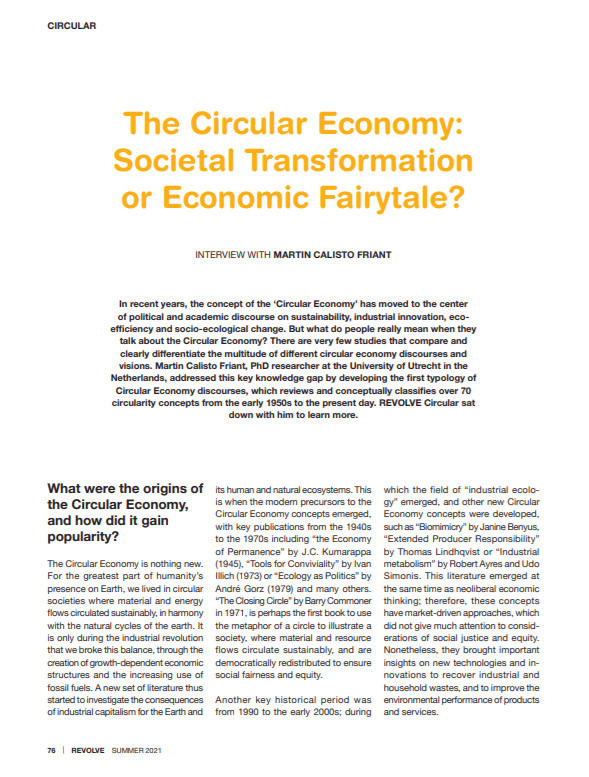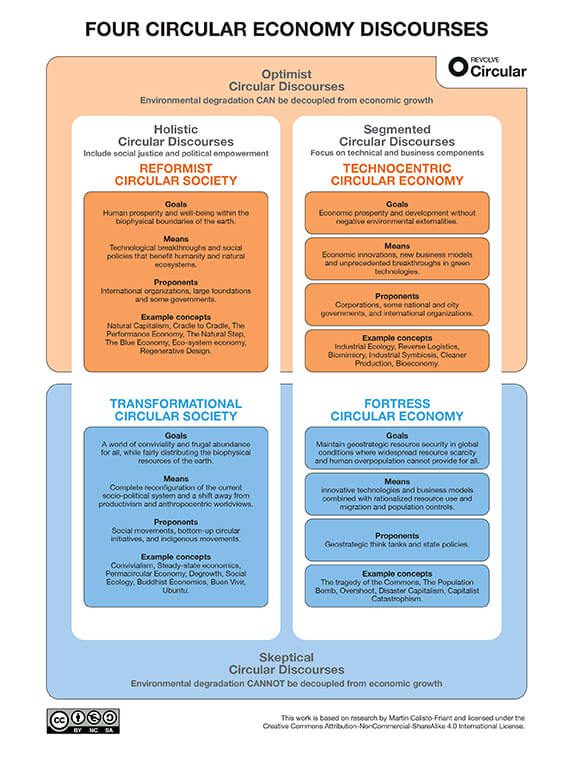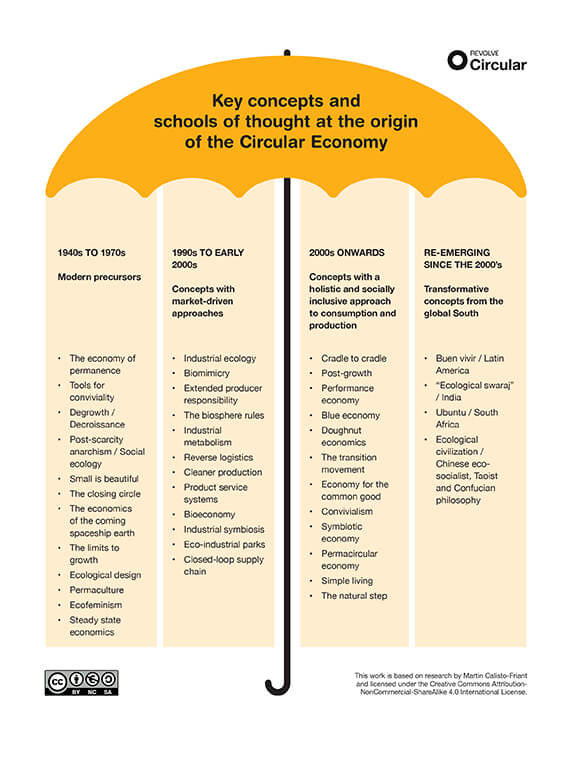The Circular Economy: Societal Transformation or Economic Fairytale?
In recent years, the concept of the ‘Circular Economy’ has moved to the center of political and academic discourse on sustainability, industrial innovation, eco-efficiency and socio-ecological change. But what do people really mean when they talk about the Circular Economy?
There are very few studies that compare and clearly differentiate the multitude of different circular economy discourses and visions. Martin Calisto Friant, PhD researcher at the University of Utrecht in the Netherlands, addressed this key knowledge gap by developing the first typology of Circular Economy discourses, which reviews and conceptually classifies over 70 circularity concepts from the early 1950s to the present day. REVOLVE Circular sat down with him to learn more.
In our conversation, Martin Calisto Friant discusses the origins of the Circular Economy and how it gained popularity, also presenting a historical overview of the key concepts and schools of thought at its origin.
“There is a key contrast between the way that academics understand circularity and how businesses and governments are implementing it”, says Martin. His research identifies four main “circularity discourse types”, and presents an overview of each type’s respective goals, means, proponents and example concepts.
Find out about the Circular Economy discourse types and learn more about the origins and visions for a more circular economy.


